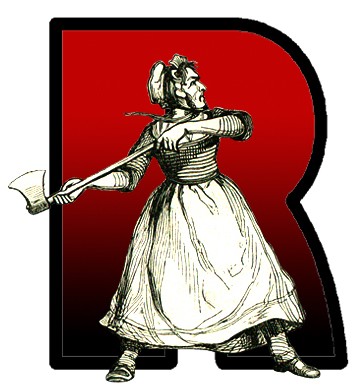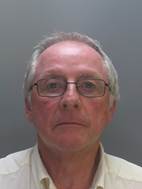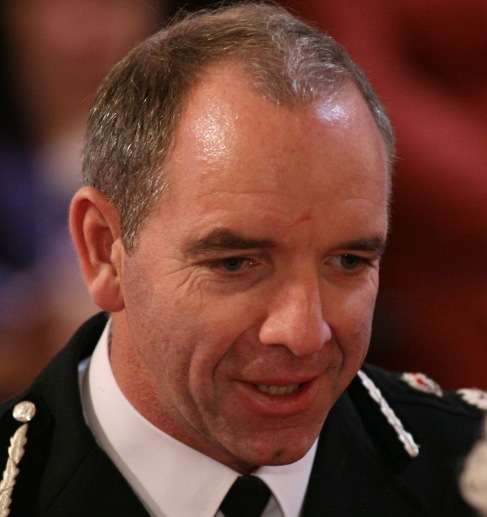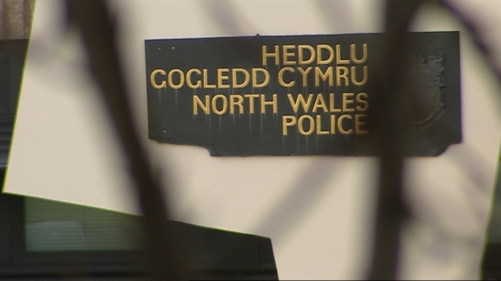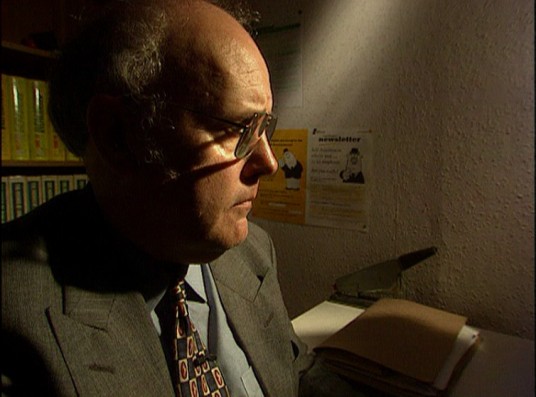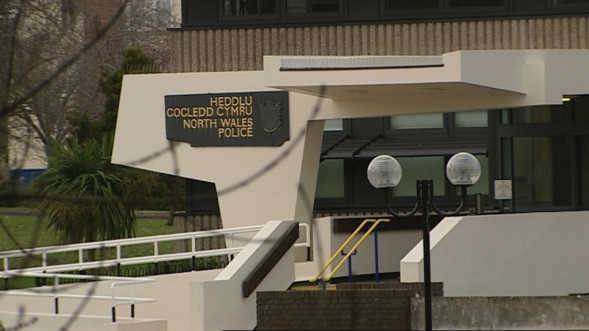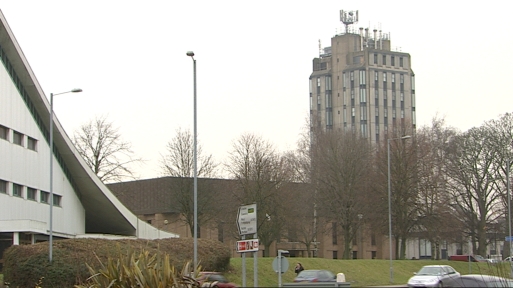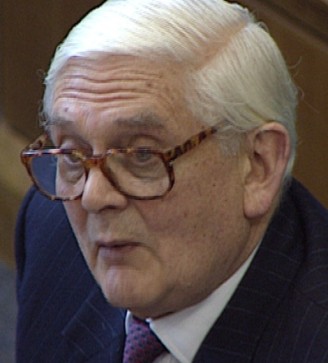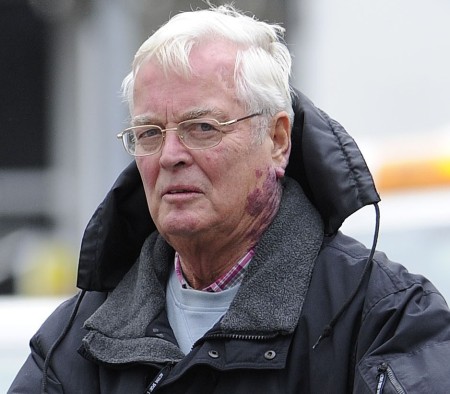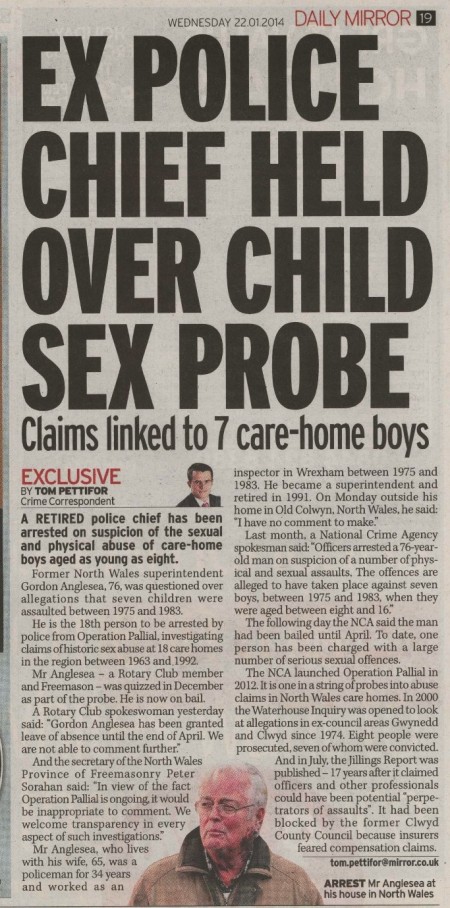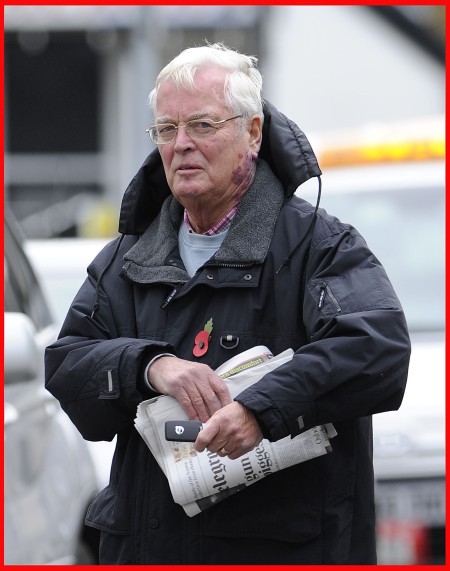23 October 2016

TWENTY FIVE years after he was first named as a sexual predator Gordon Anglesea has been brought to book.
On Friday [October 21] a jury of five women and six men branded the retired police superintendent a child abuser.
They did what North Wales Police, the judiciary — and £20 million of public money had failed to do.
They unanimously convicted him of four counts of indecent assault against two boys in the 1980s.
Anglesea is remanded on bail until November 4.
[He was later gaoled for 12 years — see Gordon Anglesea: Justice.]
Judge Geraint Walters told him “there can only be one sentence and that will be a prison sentence”.
The six-week trial was a raw, bad-tempered affair.
The jury were unhappy because they were in court for less than a third of the time.

MINUTES AFTER Friday’s verdict Rebecca revealed the existence of a new allegation against Anglesea — in 1996 he was accused of indecently assaulting a woman. Even though he lied to the police when first questioned about the incident, he was not prosecuted. Police are also investigating an alleged cover-up. One of the offences Anglesea was convicted of was first reported back in 2002 but senior officers turned a blind eye. Read more here.
The Rebecca investigation of Gordon Anglesea started 19 years ago and has cost more than £15,000 so far. The legal bill for fireproofing the resulting articles — especially The Trials Of Gordon Anglesea — came to £6,000.
The next major piece — A Force For Evil — reveals how Anglesea was protected by the North Wales Police and escaped censure in both the 1996-1997 North Wales Child Abuse Tribunal and the more recent Macur Review.
Rebecca is independent, takes no advertising, allows no sponsorship. She relies on readers who support fearless investigative journalism …
Barristers for the prosecution and defence sniped at one another throughout.
At one point the judge warned the trial was in danger of becoming a “pantomime”.
What follows is a long, detailed account of one of the most important court cases in recent Welsh criminal history.
It is unsparing and some readers may find it harrowing …
♦♦♦
WHEN 79-year old Gordon Anglesea walked into Court No 1 at the Law Centre in Mold on September 5, the press benches were packed.
Reporters from Channel 4, ITV and BBC watched as the retired policeman was searched by a security guard and took his seat in the dock.
The dock is surrounded by thick plate-glass.
Also present were journalists from the Press Association, representing the national press, Private Eye, the local Daily Post — and Rebecca.
The trial emerged out of the new investigation into historic child abuse in North Wales ordered by David Cameron in 2012.
The Prime Minister’s decision followed the claim by former care home resident Stephen Messham that he’d been abused by the senior Tory politician Lord McAlpine.
The allegation was made on the BBC Newsnight programme but later shown to be based on mistaken identity.
By then the new police investigation — Operation Pallial — was already underway.
Stephen Messham was one of three men who accused Gordon Anglesea of abusing them as children.

THERESA MAY
THE PRIME MINISTER was Home Secretary when she announced a police inquiry into historic child abuse in North Wales in November 2012. When Labour MP Paul Flynn asked her to examine material from Rebecca, she told him police “will, indeed, be looking at that historical evidence. That is part of the job they will be doing.”
Photo: PA
When Private Eye, HTV, the Observer and the Independent on Sunday reported some of these allegations in 1991 and 1992, Anglesea issued writs.
The trial in 1994 is one of the most celebrated cases in British libel history.
The jury found for Anglesea by 10-2.
In the settlement that followed, he received £375,000 in damages.
Now — 22 years later — Gordon Anglesea was back in court.
This time not as a plaintiff in a civil case but in the criminal dock as the defendant.
The original indictment accused the retired superintendent of 10 counts of abusing four boys.
The prosecution decided not to proceed with six incidents involving two alleged victims.
This meant Anglesea faced four charges.
He was accused of two counts of indecent assault and one of buggery against a boy of 14 between September 1981 and September 1982.
He also faced a single charge of indecent assault against a second boy of 14 or 15 in 1986 or 1987.
Several days of legal argument and a short adjournment meant that Eleanor Laws, QC did not start to present the prosecution case against Anglesea until Wednesday, September 14.
She told the jury she would present the evidence of the two complainants.
In addition, she would call a series of witnesses who would give evidence in support of their testimony.
♦♦♦
Complainant One is a troubled man of 48.
He cannot be named for legal reasons.
The jury watched him give his evidence in chief in a series of recorded DVDs.
He then took the stand, waiving his right to do so behind screens.
He told the court he was an alcoholic who also took drugs and had a history of serious mental illness.
He had a long criminal record — mainly burglaries — but told the court he’d not been in trouble for many years.
He did not come forward until he told a counsellor about the abuse in 2015.
The jury heard that in 1982 he was ordered to spend 18 hours at the Wrexham Attendance Centre .
He was 14 at the time
The centre was part of a nationwide Home Office initiative in the late 1970s, designed as an alternative to youth custody.
The boys’ detention took place on alternate Saturday afternoons at St Joseph’s School in Wrexham.

WREXHAM ATTENDANCE CENTRE
FOR NEARLY eight years the centre was based at St Joseph’s School in Wrexham. Magistrates ordered boys to spend several hours detention every other Saturday in a military-style setting.
It was scheduled to coincide with the home games of the Wrexham football team.
The centre ran from 1978 to 1986.
For most of that time it was run by Gordon Anglesea, then a North Wales Police inspector, assisted by several other police officers.
Complainant One said the routine was gym and a race in a field followed by showers and a woodwork lesson.
He was a good runner and easily won the races in the initial series of sessions.
He said Anglesea then ordered him to start later to give the other boys a chance.
As a result he came last and showered alone.
On three of these occasions Anglesea sexually abused him.
The first time he was naked after his shower when Anglesea brushed his arm against his genitals.
Anglesea was “saying some nice things”.
Looking back, he believes the police inspector was testing him to see if he would protest.
He didn’t.
The second time, Anglesea told him to kneel over a bench while still naked — and then penetrated his anus with his finger.
Anglesea was charged with indecent assault for these two alleged offences.
On the third occasion the complainant said he was forced over the bench again — and Anglesea penetrated him either with his finger or his penis
Anglesea was charged with buggery or the alternate count of indecent assault.
The complainant blamed the abuse by Gordon Anglesea for most of his problems:
“He’s wrecked my life. He has, he’s wrecked my life. I’m an … alcoholic.”
“I’ve been in prison all me life and everything just because I hate police and everybody because of him.”
Several times he dramatically pointed to Gordon Anglesea — and insisted he was the man who abused him.
Tania Griffiths QC, defending Anglesea, put it to him he’d made a mistake about Anglesea’s distinctive strawberry birthmark.
He’d described it as being on the wrong side of his face.
The complainant replied that it was a long time ago but he was certain Anglesea abused him.
Griffiths also put it to him that the benches in the changing room were too small for him to be abused on one.
He said that’s where the abuse took place.
Griffiths also put it to him that he’d heard about Anglesea from other people and on social media.
He denied it.
She asked:
“You’re a liar, aren’t you?”
He replied:
“Believe what you want to believe.”
Complainant One said he wanted Anglesea to get his “upandcommance.”
“He’s wrecked people’s lives and he needs to pay for it”.
♦♦♦
THE PROSECUTION called several witnesses in support of Complainant One’s story.
Paul Godfrey was one of the most important.
Not only did he give evidence about the attendance centre, he would also claim to have seen Anglesea in a hotel room with a homosexual market trader and an underage boy.
Godfrey was 15 when he was ordered to spend 24 hours at the attendance centre in 1980.
He’d been convicted of burglary and theft.
He said that when the boys were showering after gym Anglesea would stand at the entrance “ogling” them.
Godfrey said Anglesea did not touch him.
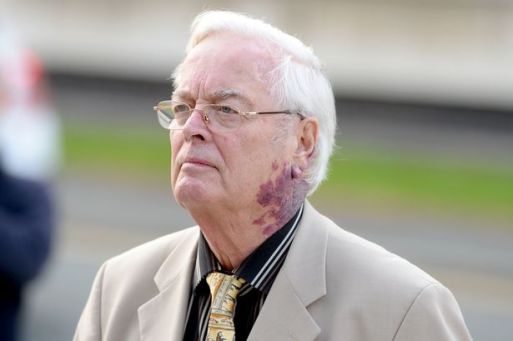
“UPANDCOMMANCE”
ONE OF the complainants against Gordon Anglesea said his life has been ruined by the abuse — he wanted the man who assaulted him to get his “upandcommance”.
Photo: Trinity Mirror
Anglesea’s barrister put it to him that allegations about the showers, “became part of the local folk-lore, didn’t it?”
Godfrey was emphatic: he’d seen Anglesea watching the boys showering.
Two other witnesses can’t be named for legal reasons.
Witness “Alpha” gave his evidence behind screens.
He spent 24 hours at the attendance centre in 1986 when he was 16.
He’d been convicted of theft and assault.
He said Anglesea was always present when the boys were showering — looking at their bodies.
Defence QC Tania Griifiths said he’d made this up:
“It’s absolute nonsense, isn’t it?”
“Alpha” said it was the truth.
Griffiths put it to him he wanted revenge on the former policeman for family reasons.
He denied this.
Another man — who also can’t be named for legal reasons — gave evidence.
Witness “Bravo” spent 18 hours at the attendance centre in 1983 after a conviction for assault.
He said Anglesea was always present in the showers.
But he went further.
He said that on one occasion Anglesea ordered some boys to do sit-ups and squat thrusts while naked after the showers.
“Bravo” said on one of these occasions he was ordered to lie on his back and open and close his legs while Anglesea watched.
“Bravo” was asked:
“Have you come to court to tell lies?”
“No,” he replied.
The next witness to give evidence came forward during the trial.
Jason Ellis had seen reports about the attendance centre in the local paper, the Wrexham Leader.
He told the court he served 24 hours at the attendance centre in 1982 for offences including burglary.
He said he remembered reading reports of the libel action in 1994 of allegations that Anglesea watched boys in the showers.
At the time Ellis told his wife:
“that’s exactly what happened when I was there.”
Tania Griffiths suggested Jason Ellis was simply repeating allegations which had been made on the internet.
He said he remembered only what he’d seen.
Christina Ellis gave evidence confirming her husband’s testimony — it stuck in her memory because it was the first time he’d ever mentioned the attendance centre.
One of the police officers who assisted Anglesea in running the attendance centre was Graham Butlin.
Butlin was too ill to give evidence but his son Michael, a serving North Wales Police officer, made a statement.
Michael Butlin said he’d been to the centre with his father.
The prosecution called him to give evidence about this.
When he arrived at court, however, PC Butlin said he wanted to change his statement — and removed the section which supported the prosecution.
He was not called.
The jury never heard what he had to say about the centre …
♦♦♦
THE ALLEGATION of sexual abuse made by the second complainant was different to those made by Complainant One.
Complainant One said his abuse took place when he was alone with Anglesea.
Complainant Two claimed Anglesea abused him when others were present.
He said he became the plaything of a paedophile ring and was handed around like “a handbag”.
Aged 44, he’s currently serving a four-year sentence and was brought to court from gaol.
He gave his evidence behind screens — only the judge, jury and the barristers could see him.
He was often volatile and at one point said he wanted to stop giving evidence:
“I feel I’m going to explode”.
The judge persuaded him to carry on.
Many of his problems, he believed, came from the abuse he’d suffered.
It was only through counselling that he had begun to understand the significance of what had happened to him.
In 1986 he was sent to the private Bryn Alyn children’s home where he was indecently assaulted by the owner, John Allen.
In 1994 Allen was sentenced to six years for abusing six boys in his care.
The complainant was not one of them — and he did not report his alleged abuse to the police who were investigating Allen.
He told the court he was bullied by the other boys.
When he went to John Allen to ask him to stop it, Allen abused him:
“ … he was saying I’m a special person … they have, special people have relationships, men and boys, and they keep it a secret.”

PIED PIPER
JOHN ALLEN was paid £30 million by local authorities to look after problem children between 1974 and 1991. He built an empire of private children’s homes in North Wales but was selecting vulnerable boys for abuse. He’s currently serving a life sentence — in all he was convicted of abusing 25 children in his care.
“… I accepted it. I’ve done things that’s haunted me all my life, all my life, and I can’t let go of it, eats me away in here [points to his chest].”
It wasn’t until 2001 that North Wales Police came to see him as part of a second investigation into John Allen.
Detectives told him another former resident claimed the complainant had seen John Allen abusing him.
Complainant Two said this wasn’t true.
But he told detectives Allen had indecently assaulted him.
He also said that Allen allowed other men to sexually abuse him — but did not identify them.
In 2002 officers from North Wales Police interviewed him again.
This time he handed them a piece of paper with details of three of his alleged abusers.
The jury were shown a copy of this document.
There were three names on it: “Peter,” “Norris” and “Gordon”.
“Peter” is Peter Howarth, the former deputy head of the local authority-run Bryn Estyn home.
He died of a heart attack in 1997 while serving a ten year sentence for the sexual abuse of boys at Bryn Estyn.
“Norris” is Stephen Norris, a former housemaster at Bryn Estyn.
He served two prison sentences after admitting abusing boys in his care.
In 1990 he was given three and a half years, in 1993 it was seven.
“Gordon”, according to a note on the piece of paper the complainant handed to police, is described as:
“5’9”, mid build, mousey brown well kept, prim and proper dressed, birthmark on face, had blue a piercing stare, said I was dirty and he could have me in jail if I told lies, big glasses.”
Complainant Two said he hoped detectives would “latch on” to the significance of his description and “put two and two together”.
He said they didn’t.

“GORDON”
NORTH WALES POLICE are investigating the 2002 failure to follow up the allegation that Gordon Anglesea was an abuser. A spokeswoman said: “we can confirm that … Professional Standards Department have received a complaint as a result of Operation Pallial that is being investigated.”
The complainant explained how the alleged abuse by Gordon Anglesea happened.
He said John Allen used to take him to various houses where he would be expected to carry out cleaning duties.
Often there would be other men there who, after he’d finished his tasks, would abuse him.
He said that on one occasion he was taken to what he described as a “sandstone house” in Mold — with a long driveway and no gate.
“One fella there, I can’t remember his name, he was a nasty horrible piece of work, he had like a birth mark on his face and he had glasses, he’s something to do with the police.”
“He grabbed me by the hair, I didn’t like him, and he wanted me to, er, perform oral sex on him and I didn’t want to. “
“And he grabbed hold of me, you know, he choked me with his penis, basically, he was really rough, it was horrible.”
“And he was threatening me, he was saying, I’d never see my parents again, he would send me away, he had the power to send me away, far, far away, and I’d never see my family again.”
He said this was the only time Anglesea abused him — on other occasions he was standing in the shadows, watching the abuse.
It wasn’t until Operation Pallial was launched that the complainant fully named Anglesea as one of his abusers.
The complainant told the court that he hadn’t named him earlier because he was afraid.
During his evidence he made a new allegation, not involving Anglesea.
This concerned a session where a dog belonging to John Allen bit his penis.
He’d been ashamed to mentioned it earlier because it concerned bestiality.
Tania Griffiths QC, for Anglesea, told the complainant:
“You’re making it all up.”
He said it was true.
He denied inventing the account of Anglesea abusing him because he was hoping it would improve his chances of parole.
She put it to him that the “sandstone house” couldn’t be found — because it didn’t exist.
It did, he said.
She also accused him of coming up with the story for compensation.
“I don’t want compensation,” he insisted, “I want justice”.
She also asked him why he hadn’t recognised Anglesea when he abused him: after all, he’d seen him a few weeks earlier at Wrexham Police Station.
The complainant said he simply didn’t realise they were the same man.

WREXHAM POLICE STATION
THROUGHOUT THE late 1970s and much of the 1980s Gordon Anglesea was based at this tower block in Wrexham, since demolished. He was a well-known policeman in the town and many boys knew him from the Wrexham Attendance Centre. His nickname was “Wacman”.
Tania Griffiths also challenged him about the dog he claimed had bitten him.
He insisted it was true — and would allow a doctor to medically examine him.
(Later in the trial, this examination took place.
A doctor told the court that the scarring referred to was, in fact, a natural feature of the underside of his penis.
He agreed that any injury could have healed without leaving any permanent scar.]
The complainant admitted to a long criminal record.
“I’m a bad man,” he said.
He became a burglar to make money.
“But before that, you know, in my early years I used to go and burgle houses, not take nothing, just smash the houses up, just so that person could hate me as much as I hated myself.”
♦♦♦
THE PROSECUTION were painting a picture of Gordon Anglesea as a police officer who took a close interest in young boys.
He ran the attendance centre for many years and his patch included the Bryn Estyn and Bryn Alyn children’s homes.
He began the unusual practice of cautioning boys at both homes when it was normally done at the police station.
There was also evidence that he knew homosexuals and known or suspected paedophiles.
One of these was a market trader called Arthur who often rented a room at the Crest Hotel — now the Wynnstay Arms.
Arthur’s full name was not given in the trial.
From other sources, Rebecca has identified him as Arthur Connell.
A known homosexual, he has a conviction for indecency.
Paul Godfrey — who had given evidence about the Wrexham Attendance Centre — said he was a regular visitor to Connell’s room at the Crest Hotel in the late 1970s.
In his early teens he skived off school to work on Connell’s stall at Wrexham’s Monday market.
Another boy who helped was Mark Humphreys, known as Sammy.
Sammy was also a frequent visitor to the hotel room.
(The jury were not told that Mark Humphreys was one of the first to allege abuse at the hands of Gordon Anglesea.
He gave evidence at the libel trial in 1994 but the jury didn’t believe him.
He was found dead in his Wrexham bedsit in 1995.)
Paul Godfrey said that while they were in the hotel room, Connell would take a shower and parade around naked before getting into bed.
He would invite the boys to have showers as well — and then give them money to have their photos taken.
Godfrey was suspicious of him.
He wanted the money but would only be photographed covered by a towel.
But Sammy, he told the court, would often get into bed with Arthur.
He said there was talk — “rife, really rife” — that Sammy was involved sexually with Arthur.
One day there was a knock on the door.
It was Gordon Anglesea.
Godfrey said Anglesea wasn’t happy he was there — he told Connell to get rid of him.
Godfrey later reported the incident to a detective called Gwyn Harris.
He says Harris — now dead — didn’t believe him.
♦♦♦
THE EVENTS of 1982 became one of the key battlegrounds of the trial.
The prosecution case was that Gordon Anglesea got to hear of Godfrey’s talk with Gwyn Harris — and tried to coerce him into silence.
The defence argued there was no evidence to back this up.
Godfrey told the court that his relations with the police were troubled even before the incident at the Crest Hotel.
He said that on one occasion he was beaten up by a police officer called Paul Glantz.
Godfrey was then charged with being drunk and disorderly.

CLIMATE CHANGE
THE SHADOW of Jimmy Savile — who used celebrity to mask widespread abuse of children — hung over the Anglesea trial. Anglesea’s barrister warned the jury not to be swayed by emotion …
Photo: PA
When he was in court for this offence, Godfrey produced a ripped and bloody shirt and claimed Glantz had assaulted him.
The case was dismissed — and the police officer charged with false imprisonment.
Glantz was tried at Chester Crown Court but acquitted.
Godfrey said that things got worse when he told Gwyn Harris about Anglesea’s visit to Arthur Connell’s hotel room.
He was in the Crest sometime later when, out of the blue, Gordon Anglesea suddenly appeared.
Anglesea said:
“You’ve been to the police station, you’ve made allegations against me.”
Anglesea warned him he was asking for a “hard time”.
In November 1982 Godfrey was accused of stealing Wrigleys chewing gum from a newsagents in Wrexham.
He was kept in the cells overnight.
He was angry that he was held for the alleged theft of what he said was just £2.90 worth of gum — and believed Anglesea was behind the decision.
He claimed Anglesea came to his cell and said:
“I told you. You better keep your mouth shut about what’s going on.”
The prosecution drew attention to an entry in Anglesea’s 1982 pocketbook which made it clear he knew Paul Godfrey.
This entry — made the month before the incident with the chewing gum — concerned a file on Paul Godfrey which had gone missing.
Anglesea wrote in his pocketbook that he spoke to Paul Glantz about this and “told him I was looking for the file”.
He added that the file was wanted “urgently” because there was a “complaint against police.”
The prosecution did not say it, but the implication was that there might have been a record in the file about Godfrey reporting Anglesea’s alleged visit to the Crest Hotel.
The defence said there was a perfectly innocent explanation for Anglesea wanting the file — Godfrey had made a complaint against Paul Glantz.
Tania Griffiths, defending Gordon Anglesea, added that the file had apparently turned up a few days later.
Griffiths put it to Godfrey there was a perfectly good reason to remand him over the chewing gum incident — there were other outstanding offences.
Godfrey was adamant he’d been victimised.
Griffiths also took him to the statement he’d made to police investigating child abuse in the 1990s.
She said he’d stated:
“I’ve no complaints to make about this period of my life.”
Godfrey said he didn’t trust the North Wales Police.
The prosecution also introduced a statement taken from the deputy manager of the Crest Hotel in the late 1970s and early 1980s.
Christopher Appleton said young boys between the ages of 10 and 16 would go up to Arthur’s room.
He assumed they were helping on the market stall.
One of these, a boy of 12 or 13, became a “bit of a pest” by turning up on Sundays asking for Arthur.
It was implied — but not stated — that this was Mark “Sammy” Humphreys …
♦♦♦
THE PROSECUTION also brought evidence alleging Gordon Anglesea had links with the ringleader of a paedophile ring in Wrexham.
This was Gary Cooke, a man who used aliases to conceal the fact he had a long string of child abuse convictions.
In 1979 police discovered photographs hidden in a hollowed out book at his home.
One of these was an indecent photo of Mark Humphreys.
In 1980 Cooke was gaoled for five years for a series of offences, one of which related to this photograph.

RINGLEADER
GARY COOKE is one of the most active child abusers in North Wales. He was the organiser of a paedophile ring which systemically abused boys at his home. In October 2015 Cooke and four associates — including former Metropolitan Police officer Edward Huxley and BBC radio presenter Roy Norry — were gaoled for a total of 43 years on 32 counts of sexual abuse.
Photo: Trinity Mirror
Witness “Alpha”— who also gave evidence about Anglesea watching boys in the showers at the attendance centre — claimed Anglesea knew Cooke.
“Alpha” had been sexually abused by both Cooke and John Allen, the head of Bryn Alyn.
He said he was at Gary Cooke’s home one day when Gordon Anglesea turned up:
“he knocked on the door … he [Cooke] says it’s just a friend, or whatever.”
“And I’m sat there … and, let him in … he’s just walked through, they’ve talked in the kitchen.”
“And then they’ve come through and … said their goodbyes and then he’s gone.”
The defence attacked Witness “Alpha”.
Tania Griffiths put it to him that his claim to have seen Anglesea at a house owned by Cooke was wrong.
At that time Cooke hadn’t bought it.
“Alpha” said he wasn’t lying — he’d just got the wrong address.
Tania Griffiths also homed in on an incident in which he claimed he’d been abused in the same property by a member of Cooke’s paedophile gang, the BBC radio presenter Ray Norry.
“Alpha” claimed he was being assaulted on a glass table by Norry when it broke and the BBC presenter was injured.
The defence said this incident had, indeed, happened — in March 1984 — but not at the address “Alpha” claimed.
Roy Norry received hospital treatment for a deep wound to his lower back.
The accident was witnessed by a friend.
Anglesea’s defence QC put it to “Alpha” that he couldn’t have been present.
He was lying.
“Alpha” replied that he was telling the truth.
♦♦♦
GORDON ANGLESEA, the prosecution said, also knew another convicted paedophile.
This was Peter Howarth, the deputy headmaster at the local authority-run Bryn Estyn children’s home near Wrexham.
Howarth was gaoled for ten years in 1994.
A jury found him guilty of seven counts of indecent assault and one of buggery.
He died before he could complete his sentence.
Bryn Estyn was in the Bromfield section of the Wrexham police area — and Gordon Anglesea was the inspector in charge.
Anglesea said his first visit to the home did not take place until 1980 and he did not know Howarth.
The prosecution drew the jury’s attention to a letter sent by Bryn Estyn headmaster Matt Arnold to Anglesea in March 1980.
It was about Bryn Estyn boys arriving late at the attendance centre.
Arnold wrote:
“I have only just returned to work from a period of sick leave, so I’m not aware on a personal basis of all the discussions that have gone on between you and Mr Howarth.”
The prosecution also called retired police inspector Ian Kelman to give evidence.

PETER HOWARTH
THE DEPUTY HEAD of Bryn Estyn, Howarth died in prison after he was gaoled for ten years in 1994 on seven counts of indecent assault and one of buggery. Gordon Anglesea has always denied that he knew Howarth …
Photo: Press Association
He told the jury he saw Gordon Anglesea at Bryn Estyn on two occasions between 1975 and 1980.
On one of these occasions he saw Anglesea with Howarth.
Kelman had given a statement to this effect to the defence in the 1994 libel action but ill-health prevented him from taking the stand.
Tania Griffiths, for Anglesea, asked him if he’d given a copy of his 1994 statement to Rebecca.
“No,” he replied.
(In fact Rebecca editor Paddy French obtained a copy of the statement from the files held by HTV on the 1994 libel action when he was a current affairs producer for the company.)
The current Police and Crime Commissioner for North Wales, Arfon Jones, also gave evidence.
He’d been a police constable in the 1980s and his duties included acting as Anglesea’s driver.
“The only place I recall taking him was to Bryn Estyn children’s home.”
“If he wanted to go to Bryn Estyn he would ask me and I would take him.”
He said it probably happened half a dozen times between 1982 and 1985.
He thought Anglesea was giving cautions.
He said he dropped Anglesea off and did not come back to collect him.

JONES THE DRIVER
ARFON JONES, the Police and Crime Commissioner for North Wales, told the court he often drove Gordon Anglesea to the Bryn Estyn children’s home. He dropped him off and was never asked to go back and collect him …
Photo: Police & Crime Commissioner’s Office
Anglesea later pointed out that Bryn Estyn was a 20 minutes walk from his home — and that he gave cautions at the end of his shift.
Another former policeman who gave evidence was retired police sergeant John Graham Kelly.
He worked in the Bromfield section and acted as his driver from time to time.
He was also Gordon Anglesea’s second in command at the Wrexham Attendance Centre
He was, he told the court, a friend of Gordon Anglesea’s.
He was supposed to be a prosecution witness but when he took the stand, he appeared to give evidence supporting the defence.
He told the jury Anglesea rarely gave cautions at children’s homes.
Eleanor Laws, for the prosecution, then pointed out that this comment contradicted his police statement which said:
“I’m aware that Gordon Anglesea on a very regular basis visited Bryn Estyn and Bryn Alyn and conducted cautions at their premises …”
He added it “ … almost became the norm.”
Eleanor Laws asked — which version was correct?
Kelly now accepted that his written statement was correct — not the version he’d just given in open court …
Paul Godfrey also spent time in Bryn Estyn.
He was there twice in 1981.
He said that on the second occasion he was taken to the home by Gordon Anglesea.
He said that, just inside the front door, was what he called a “holding cell”.
He says that Anglesea ordered him to strip naked while staff brought a new set of clothes for him.
Tania Griffiths, for Anglesea, asked Godfrey if he was making the whole episode up.
“The point is you’re trying to paint a bad picture here.”
Godfrey came back:
“It is a bad picture.”
♦♦♦
THE PROSECUTION also called Alan Norbury, the senior investigating officer from Operation Pallial, to give evidence.
He was asked about the police interview in 2002 during which Complainant One produced the note which named a man called “Gordon” as one of his abusers.
There had been an email exchange between senior officers about this note which made it clear they believed “Gordon” was likely to be Anglesea.
Norbury was asked if these police officers should have investigated further.
Norbury replied that they should.
When Norbury was cross-examined by Tania Griffiths she asked him about the events that surrounded Gordon Anglesea’s arrest on 12 December 2013.
Anglesea was arrested and police executed a search warrant.
Ms Griffiths asked if police found anything when they searched his home.
They did not, Norbury replied.
When police seized Anglesea’s computer, the retired policeman said:
“You’ll find nothing on that.”
There was nothing incriminating on the hard drive.
When Anglesea was arrested, police did not name him.
The press release stated only that a 76-year-old male from Old Colwyn had been arrested.
Ms Griffiths then placed an article from the Daily Mirror of 22 January 2014 on the TV monitors in the courtroom.
Marked “Exclusive”, this revealed the pensioner arrested in December was Gordon Anglesea.
Ms Griffiths asked Norbury how the paper had found out.

FALSE ACCUSATION
DEFENCE BARRISTER Tania Griffiths accused the National Crime Agency [NCA] of deliberately leaking Anglesea’s name as “bait” to attract more complainants. She screened an article from the Daily Mirror as evidence of this tactic. In fact, there was no leak from the NCA — Anglesea’s name had been revealed six days earlier by Rebecca. Confirmation had come from the Rotary Club. Gordon Anglesea, who sat silent in the dock while his barrister made the allegation, knew it wasn’t true. We had warned him in a recorded delivery letter that he was going to be named. Rebecca has asked the disciplinary watchdog of the Bar Council to decide if the jury was deliberately misled on this point…
Photo: Press Association
She asked if it was someone from his team who was responsible.
He said it wasn’t.
“You were hanging him on a line,” Griffiths put it to him, as “bait” to attract other complainants.
Norbury said that wasn’t true.
Griffiths asked him if he’d carried out an inquiry to find out how the information had leaked.
He said he hadn’t.
♦♦♦
GORDON ANGLESEA took the stand at 2.45 on Thursday afternoon, 6 October 2016.
He was dressed in a dark blue wide pin-striped suit with a tie.
He took the oath in a loud, confident voice.
He said a newspaper article in 1991 named him in such a way that it carried the “implicit suggestion” he was involved in child abuse.
Even after he won £375,000 in a high-profile libel case, he said his “nightmare” continued.
His QC Tania Griffiths asked him:
“You have heard these allegations made against you — have you ever behaved inappropriately to any boys?”
Anglesea replied:
“None whatsoever, to any child.”
He said the Wrexham Attendance Centre was run on military lines and that boys were not allowed to talk throughout the sessions.
The court did not sit the following day which meant that the prosecution could not cross-examine until Monday, October 10.
♦♦♦
IT WAS TO be one of the most dramatic days of the entire trial.
Prosecutor Eleanor Laws QC asked Anglesea about the witnesses who said they’d seen him watching boys in the showers at the attendance centre.
“You’re the victim of malicious lies?”
“That is correct,” said Anglesea.
Laws pointed out that when he gave evidence on oath the previous Thursday he’d told the jury he visited the shower area at the attendance centre “once or twice”.
But when he gave evidence to the 1994 libel trial his evidence was different.
She read from the transcript
Anglesea was asked:
“Did you stand in the showers watching the boys regularly, Mr Anglesea?”
He replied:
“I went to the showers on every occasion the attendance centre was open.”
He was asked:
“… it was not because, in fact, Mr Anglesea, you liked looking at young boys in the nude?
He replied.
“Absolutely totally untrue.”
Between 1978 and 1986 there had been something like 150-160 sessions of the attendance centre.
Anglesea had been given the transcript of the libel action to read over the weekend.
He now told the court:
“I read it and I realised there was an interpretation on there which to me was incorrect.”
Eleanor Laws said he was trying to “wriggle out of the fact you said two vastly different things.”
She accused him of lying under oath, either during the libel action or to the present jury.
Anglesea replied:
“I have made nothing up at all.”
He was also asked why he started giving cautions at the privately owned Bryn Alyn homes as well as at Bryn Estyn.
At Bryn Estyn he started because the principal was short-staffed.
But at Bryn Alyn he did it because it was “more convenient for the police”.
So who did he arrange these cautions with?
“Somebody,” answered Anglesea, “a member of staff.”
Anglesea was questioned again by Tania Griffiths.
He claimed all the allegations against him were “in my belief … part of a conspiracy.”
That conspiracy emerged in the wake of the Savile scandal “purely to obtain compensation”.
It was, he said, “abhorrent”.
♦♦♦
THE DEFENCE called several witnesses in support of Anglesea.
Retired teacher George Sumner had been a woodwork instructor at the Wrexham Attendance Centre.
Tania Griffiths asked him if he’d ever seen anything that made him uncomfortable.
“Nothing whatsover.”
Former Bryn Alyn resident Mark Taylor told the court he attended the centre in 1984 and again in 1986.
He was impressed by Gordon Anglesea: he and the rest of the staff were “fantastic people”.
He enjoyed the attendance centre so much that he continued going after his sentence was complete.
He kept in touch with Anglesea afterwards.
Retired traffic sergeant David Edwards told the court he first met Gordon Anglesea in 1966.
Anglesea was in Flintshire CID at the time.
Edwards said:
“He was one the best detective constables I ever knew.”
“I admired him.”
He was cross-examined by Eleanor Laws about statements he made about Gordon Anglesea’s visits to Bryn Estyn.
Edwards had said:
“I would like to add that Gordon would regularly attend Bryn Estyn for meetings on boys’ progress.”
He also told the court there was one occasion when Anglesea asked him to take the session because he had a masonic function to attend.
Anglesea turned up later in what Edwards described as “masonic gear”.
Edwards said there was a rule that they didn’t wear uniforms at the centre.

JUDGE GERAINT WALTERS
Rebecca wrote to the judge before the trial asking him to make a statement about freemasonry. Our letter pointed out that Anglesea is a former mason and that the judge in the 1994 libel action, Maurice Drake, made it clear he was a member of the same organisation. Judge Walters did not reply to the letter — and did not make any comment about freemasonry. We do not know if he is, or ever has been, a mason. The United Grand Lodge in London— the governing body of freemasonry — told us Gordon Anglesea resigned his membership in 2007.
Edwards told Anglesea he felt it was “ill-advised” to come to the centre dressed in that way.
Another retired police officer, Thomas Harrison, also gave evidence.
His job was to take PE and he said there were always two members of staff on duty.
He confirmed that there were races in the field outside.
Tania Griffiths asked him:
“Was any boy ever held back?”
“No,” said Harrison.
“Was Gordon Anglesea ever there?”
“No.”
Asked about the boys taking showers, he said something extraordinary:
“I can’t remember anybody having showers”.
No other witness had made this claim — not even Gordon Anglesea.
Cross-examined by Eleanor Laws, he was asked how he could possibly forget about the showers.
He said he just couldn’t remember them.
She pointed out that the boys had to change for PE — and that the showers were part of the changing rooms.
Harrison said he thought the boys changed in the gym …
♦♦♦
IN HER closing speech, Eleanor Laws told the jury that the complainants had been “raw, credible and real”.
She said that if they were lying then they had given “Oscar-winning performances.”
She urged the jury not to “leave your common sense at the door of the jury room.”
Defence barrister Tania Griffiths said the complainants “told whopping great lies.”
It was a “conspiracy” and done with “concerted and malicious intent”.
She said the prosecution had homed in on “the one mistake” — the discrepancy between Anglesea’s evidence about how often he was in the changing rooms at the attendance centre.
This was a mistake, she said — he didn’t go to the showers area every time.
Tania Griffiths warned the jury against making a decision on the basis of “no smoke without fire”.
She was obviously concerned that the post-Savile climate might influence the jury.
She said that no-one in the country would now say Savile was innocent.
But the jury should judge Anglesea not on the basis of emotion but on the evidence.
She told them about the Cliff Richard case where the singer claimed he was wrongly accused.
She also raised the television drama National Treasure where the character played by Robbie Coltrane was acquitted only for the viewer to see him actually raping his victim.
♦♦♦
THE jury started their deliberations at 9.55 on Thursday morning.
They had actually been in court for less than a third of the six week trial.
Many days were spent by the barristers arguing points of law.
The atmosphere in the court often became heated during these exchanges.
On one occasion prosecution QC Eleanor Laws accused Tania Griffiths, for Anglesea, of being “overdramatic” — branding her style “unattractive” and “offensive”.
Griffiths attacked Laws for trying to control her.
When Laws said she was trying to get “robust management of the case,” Griffiths snapped back:
“What she’s doing is robust management of me.”
On another occasion Griffiths complained Laws was constantly bringing up her greater experience in criminal law.
“It’s very wearing,” said Griffiths, “It’s very rude indeed.”
Again and again she complained the prosecution had disclosed material late.
Dogged and relentless, she tried repeatedly to widen the scope of the trial to include the events of the early 1990s.
She said Gordon Anglesea was a man who was falsely targeted by journalists and that witnesses had to be persuaded to make allegations against him.
The judge insisted the present trial could only deal with the evidence relating to the actual allegations on the indictment.
At one point he lost patience.
He said Tania Griffiths’ style was all wrong and he was “finding it tiresome in the extreme”.
“This is not a stage show”.
♦♦♦
THE JURY returned at 1.40 on Friday afternoon.
The atmosphere in Court No 1 was electric.
A court official asked Gordon Anglesea to stand.
She then asked the forewoman of the jury if their verdicts were unanimous.
She said they were.
The official then read out the first count on the indictment.
This was the indecent assault on Complainant One in the showers at the attendance centre.
She asked the forewoman to answer guilty or not guilty.
In a clear, emphatic voice she said:
“Guilty”.
Within seconds Rebecca tweeted the verdict.
There was a similar verdict on the second count, the indecent assault in the showers.
On the third count, the alleged buggery, the result was “not guilty”.
But the jury found Anglesea guilty of the alternate charge of indecent assault.
On the final count, the indecent assault on Complainant Two, the jury delivered another guilty verdict.
Anglesea was remanded on bail until November 4.
Judge Geraint Walters told the now disgraced former policeman:
“You know yourself already that there can only be one sentence and that will be a prison sentence.”
Anglesea had planned to make a statement outside the court if he’d been cleared.
Now the court and the police agreed to sneak him out of the back door of the Mold court complex.
The media were not impressed …
♦♦♦
AN EXTRAORDINARY case was over.
No-one can know what went on in the jury room but one clue emerged.
Soon after they started discussing the case, the jury sent the judge a note.

NEMESIS
STEPHEN MESSHAM, seen here at the launch of the Waterhouse Tribunal report in 2000, is one of the key figures in the North Wales child abuse saga. He was also the trigger for the police investigation that led to the fall of Gordon Anglesea. In 2012 on the BBC Newsnight programme he named Lord McAlpine as one of his abusers. By the time he’d realised it was a case of mistaken identity, Operation Pallial was already under way …
Photo: PA
They wanted to hear again the letter Bryn Estyn head Matt Arnold wrote to Anglesea after he returned from a long illness.
Arnold said he was not “aware on a personal basis of all the discussions that have gone on between you and Mr Howarth.”
Howarth was the deputy head, later to be convicted of abusing boys at Bryn Estyn.
Anglesea claimed he didn’t know him.
Asking for the letter to be read out again suggests one of the jury’s key considerations was Anglesea’s credibility as a witness.
For a quarter of a century he’d tried to avoid being tarred with Howarth’s paedophile brush.
Anglesea also resisted attempts to place him in the changing rooms at the attendance centre.
But he was badly damaged by the fact that he gave two different versions — one at the libel trial and a completely different one at Mold Crown Court.
Even some of the police officers the prosecution called gave questionable testimony.
The evidence of Thomas Harrison, the PE teacher who couldn’t remember boys taking showers, was plainly hard to believe.
The jury may have wondered if he remembered perfectly well — but that he might have seen something he didn’t want to reveal.
Retired sergeant Graham Kelly made a statement saying Anglesea cautioned often at both Bryn Estyn and Bryn Alyn.
But when he was in the witness-box, he tried to say the opposite — only to be forced by prosecution barrister Eleanor Laws to admit his statement was correct.
Kelly — a man who enjoys a reputation as a decent, honest officer — cut a sorry figure in the dock.
He was uncomfortable and gave the impression he knew a great deal more about Anglesea than he was prepared to say.
And what of serving officer Michael Butlin?
He accompanied his father when he was employed to help Anglesea run the attendance centre.
He gave a statement to Operation Pallial but amended it on the day he was due to give evidence.
The change meant his testimony was worthless to the prosecution.
♦♦♦
IN THE END, the verdict probably comes down to the changed climate in which historic child abuse cases take place.
In the old days, people who complained of child abuse were damaged souls who had to battle against the poor impression they inevitably presented in the witness-box.
Their alleged abusers normally held positions of power and authority and invariably made a good impression on juries.
This was doubly so in the case of police officers.
Today everything is different.
Juries understand allowances have to be made for the effects of the damage suffered by claimants.
And they subject suspected abusers to greater scrutiny.
In Gordon Anglesea’s case they decided his evidence did not stand up to serious scrutiny.
His fatal weakness was a simple one — he never behaved like an innocent man …
♦♦♦
Published: 23 October 2016
© Rebecca
♦♦♦
DONATIONS
If you would like to support the work of Rebecca, you can do so by clicking on the DONATE button.

COMING
A FORCE FOR EVIL
HOW DID Gordon Anglesea get away with it for so long?
The answer is he used the cloak of public office to conceal his crimes and counted on protection from North Wales Police. This article lays bare the conspiracy hatched at the highest levels of the force in the early 1990s to cover up its failure to investigate child abuse — and to protect Anglesea at all costs. In the process, the force helped Anglesea win a famous libel case and made a mockery of the £14 million North Wales Child Abuse Tribunal …
CORRECTIONS
Please let us know if there are any mistakes in this article — they’ll be corrected as soon as possible.
RIGHT OF REPLY
If you have been mentioned in this article and disagree with it, please let us have your comments. Provided your response is not defamatory we’ll add it to the article.










 Posted by Rebecca
Posted by Rebecca 




